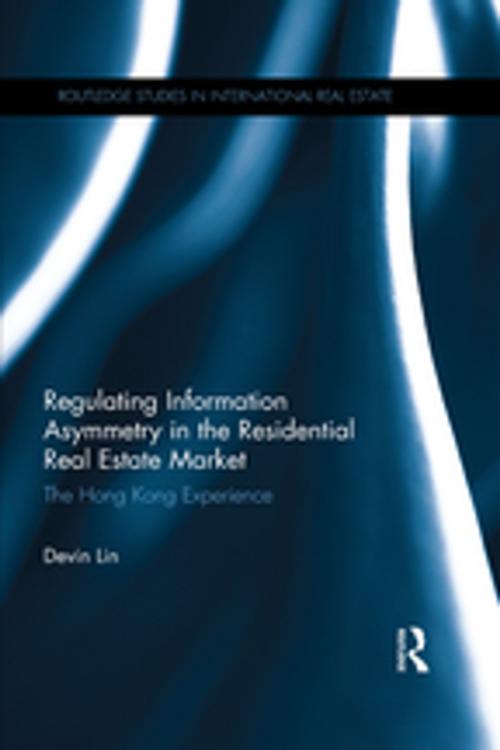Regulating Information Asymmetry in the Residential Real Estate Market
The Hong Kong Experience
Nonfiction, Reference & Language, Law, Housing & Urban Development, Business & Finance, Industries & Professions, Real Estate, Finance & Investing| Author: | Devin Lin | ISBN: | 9781315315386 |
| Publisher: | CRC Press | Publication: | July 6, 2017 |
| Imprint: | Routledge | Language: | English |
| Author: | Devin Lin |
| ISBN: | 9781315315386 |
| Publisher: | CRC Press |
| Publication: | July 6, 2017 |
| Imprint: | Routledge |
| Language: | English |
This book conducts a detailed examination of the current form of the Hong Kong residential property regulatory system: the 2013 Residential Properties (Firsthand Sales) Ordinance (Cap 621). The author sheds light on how the new legislation promotes a number of values including information symmetry, consumer protection, the free market and business efficacy. It provides a detailed account of how the regulatory mechanism has evolved over the past three decades to catch unconsscionable sales tactics (such as selective information and/or misrepresentation of location, size, completion date and past transactions) and monitor sales practices in order to protect the interests of stakeholders in this ever-changing first-hand residential property market.
This book breaks down this complicated subject matter by focusing a number of chapters each on a specific attribute of the residential property on sale. It then examines the various channels through which the information is communicated to the prospective buyer and discusses misrepresentation of the key information in sales of residential properties as criminal liability.The tension between consumer’s rights on one hand and the pursuit of free market principles on the other is but one example of the conflicting values thoroughly discussed in the book, others include superstition vs. modernization and clarity vs. flexibility.
Aimed at those with an interest in consumer protection and transparency-orientated legislation in commercialized real estate transactions, this book seeks to provide an in-depth discussion of the latest trends and directions of travel.
This book conducts a detailed examination of the current form of the Hong Kong residential property regulatory system: the 2013 Residential Properties (Firsthand Sales) Ordinance (Cap 621). The author sheds light on how the new legislation promotes a number of values including information symmetry, consumer protection, the free market and business efficacy. It provides a detailed account of how the regulatory mechanism has evolved over the past three decades to catch unconsscionable sales tactics (such as selective information and/or misrepresentation of location, size, completion date and past transactions) and monitor sales practices in order to protect the interests of stakeholders in this ever-changing first-hand residential property market.
This book breaks down this complicated subject matter by focusing a number of chapters each on a specific attribute of the residential property on sale. It then examines the various channels through which the information is communicated to the prospective buyer and discusses misrepresentation of the key information in sales of residential properties as criminal liability.The tension between consumer’s rights on one hand and the pursuit of free market principles on the other is but one example of the conflicting values thoroughly discussed in the book, others include superstition vs. modernization and clarity vs. flexibility.
Aimed at those with an interest in consumer protection and transparency-orientated legislation in commercialized real estate transactions, this book seeks to provide an in-depth discussion of the latest trends and directions of travel.















